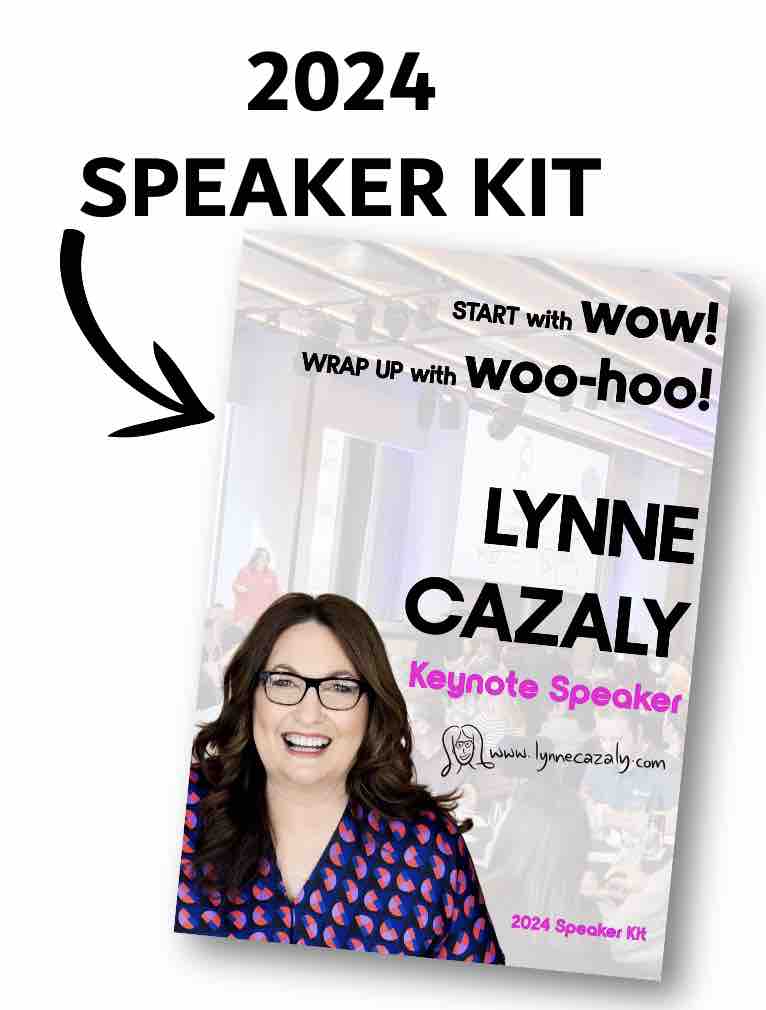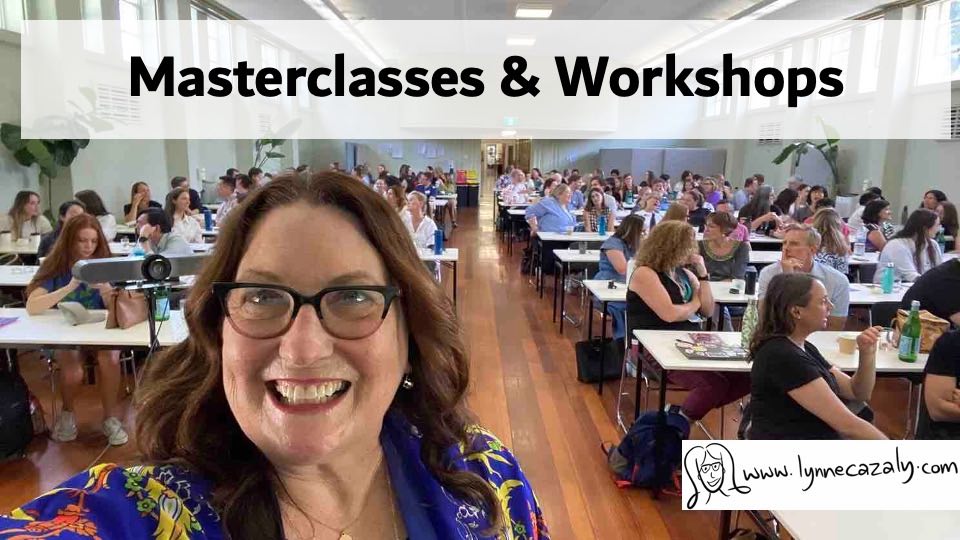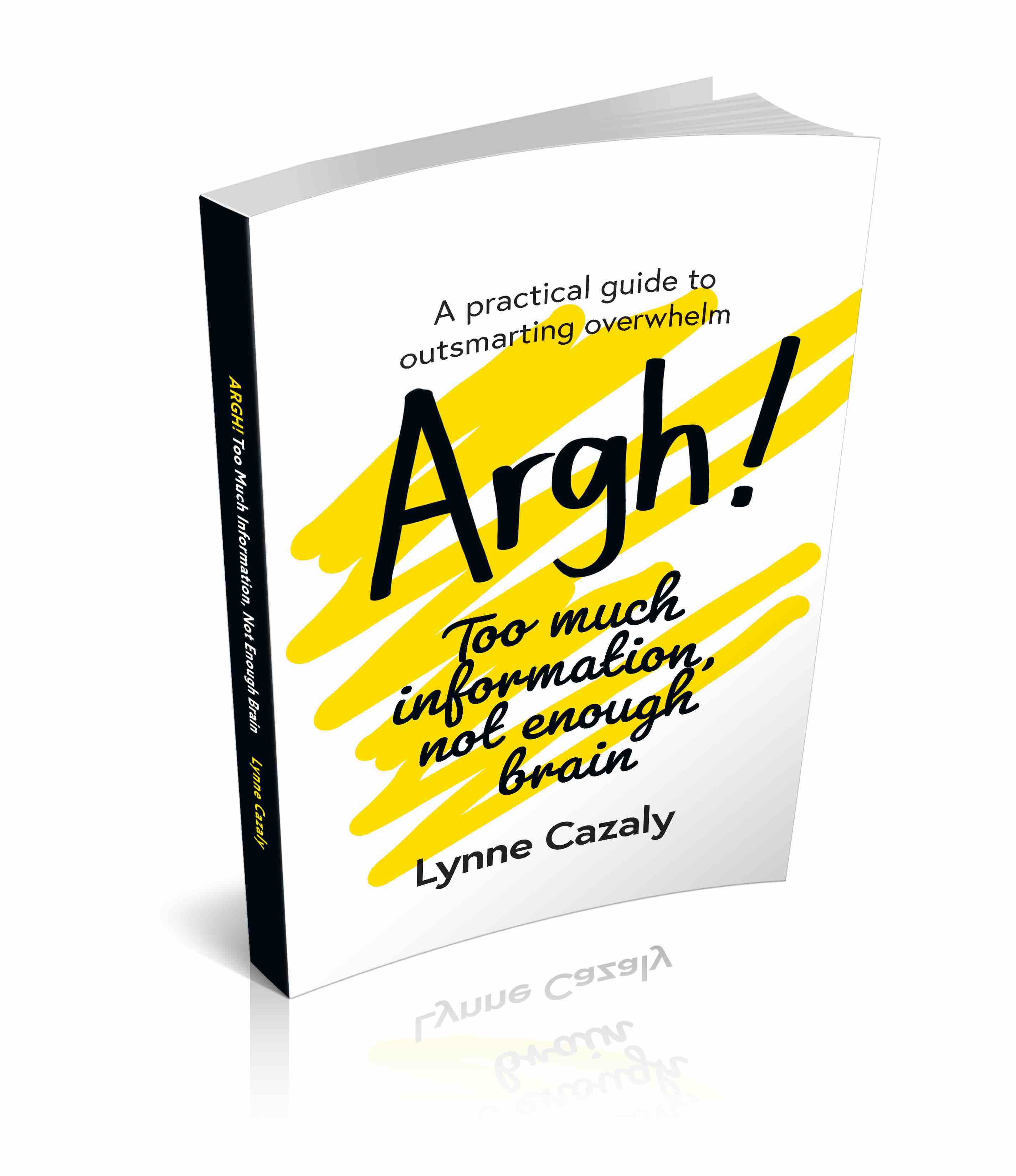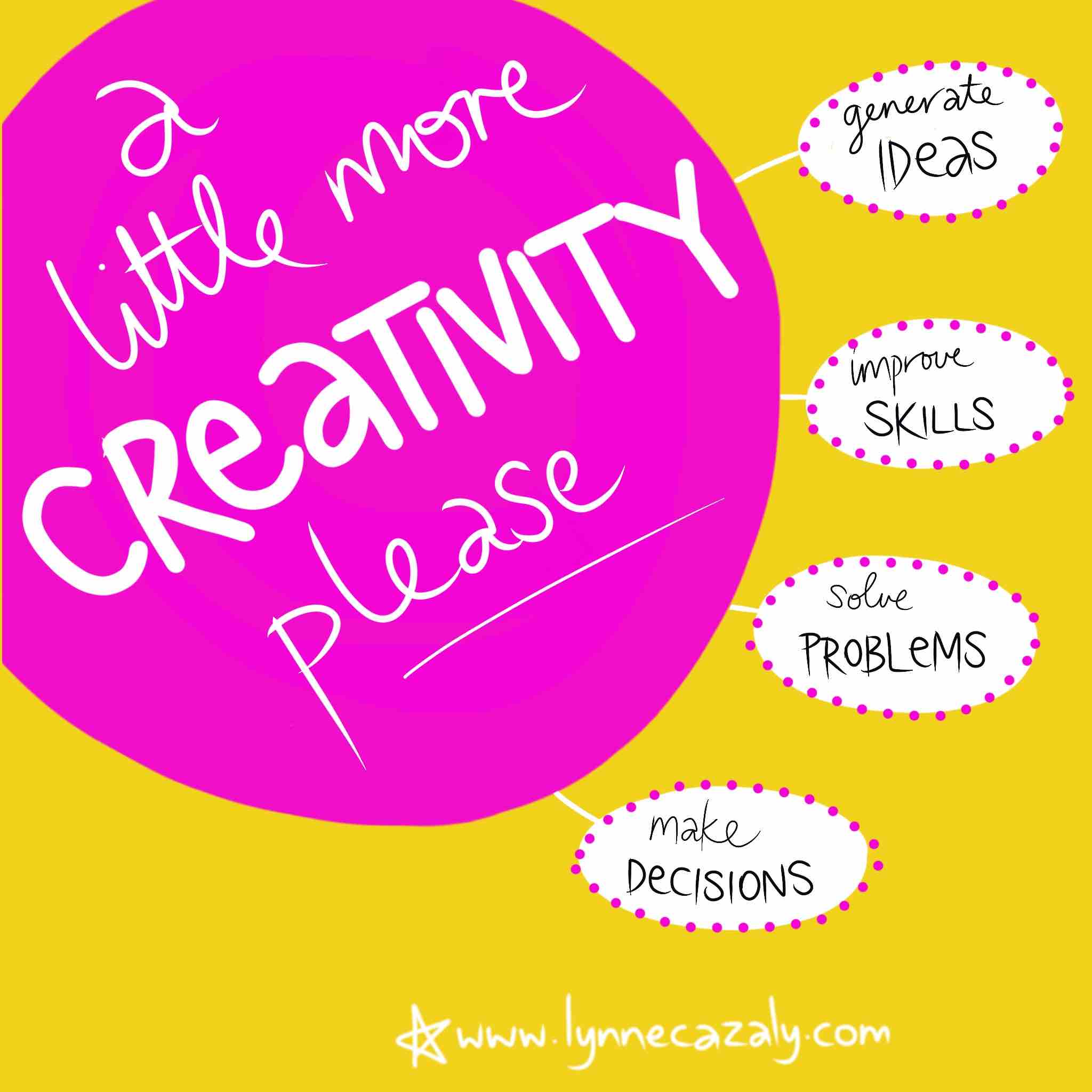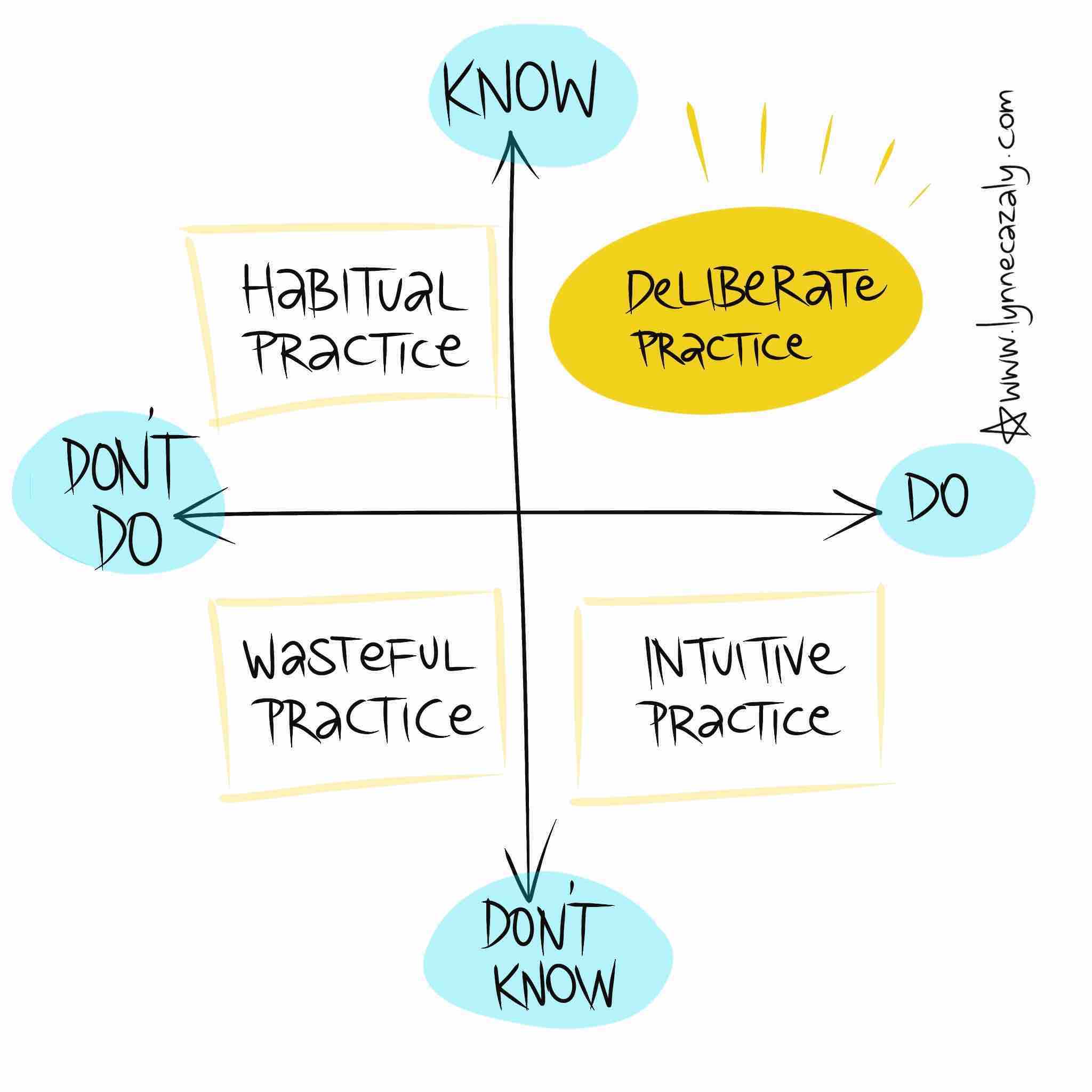Fixing Broken Work/A New Skill/Meet Less/Café Work Life/Productivity Theatre/Work Week Insights
 Monday, May 22, 2023 at 5:10PM
Monday, May 22, 2023 at 5:10PM 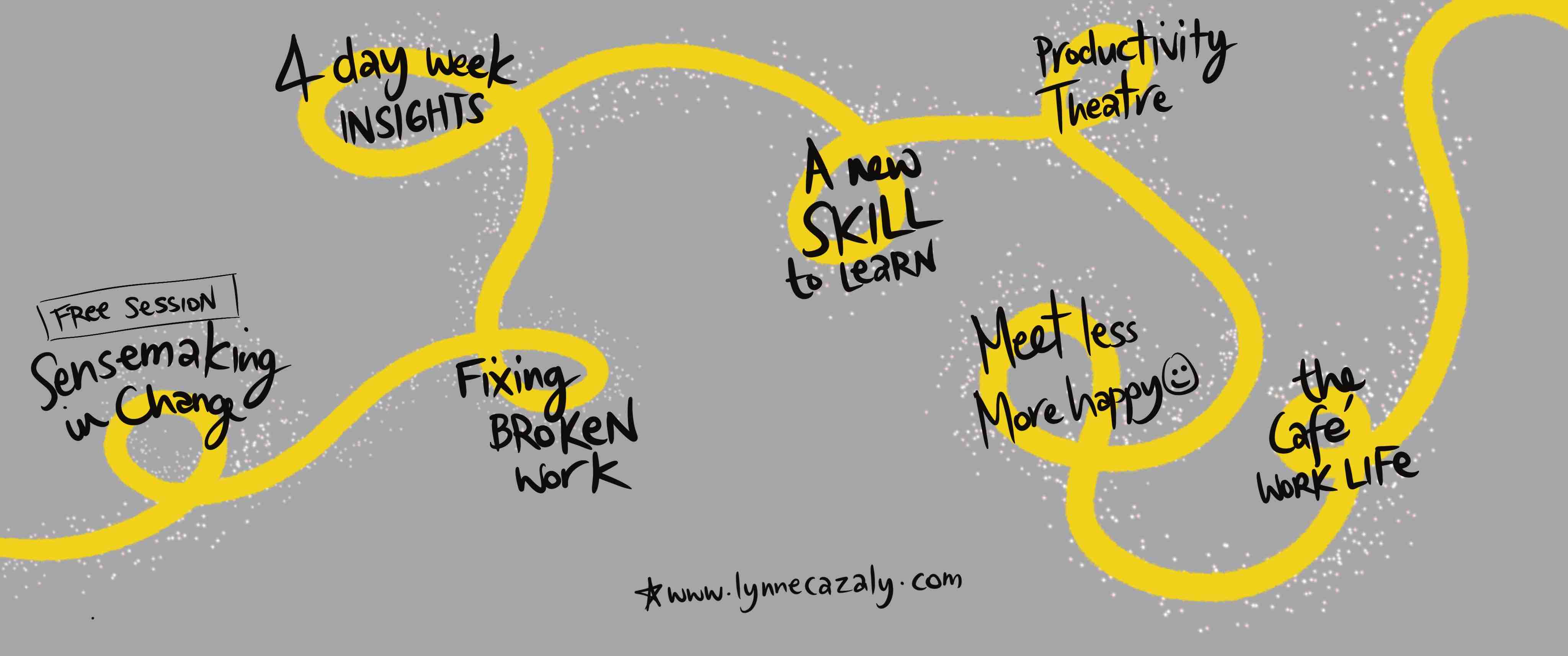 Fixing the broken bits of work
Fixing the broken bits of work
Will AI fix work? It’s a great question that new ways of working people are asking and wondering about.
In Microsoft’s latest Work Trends Index Report we get to see how much we’re:
- drowning in information
- detesting meetings … still
- wishing work had no meetings at all, and
- innovating, not.
Artificial intelligence provides opportunities to relieve us of
▫️heavy work
▫️dreary work
▫️preparatory work
▫️first draft work
and
▫️routine/repetitive work.
And this could give us more time to be creative in our work.
Although the promise of ‘if this then that’ in the history of work always delivered just another load of other work for us to do in its place.)
Grab a coffee, sit and read the report. Better still, get AI to do something for you.
Depending where you are on the AI curve, you could get AI to:
▫️read it for you
▫️provide a 100 word summary
▫️select the three most relevant quotes
▫️generate a list of six action points
▫️tell you which parts you should be most worried about
▫️start working automatically with you on your work day, schedule, meetings, presentations and reports
▫️redesign your work flow to incorporate AI wherever possible
and
… head to the beach.
A new skill to learn
No part of work is immune from the requirement to learn some new skills now and then.
Any skill to be learnt can take a little time. And some of us give up when the first 10 mins experimenting or trying don’t go so well!
We can be perfectionists when we don’t meet our own expectations of it working perfectly … immediately.
If you’re still clutching onto your electric typewriter, floppy disk or dot matrix printer, keep on scrolling.
But otherwise, there are some opportunities to tinker, play and begin learning how to make use of artificial intelligence. These are skills connected with the use, guidance, prompting and re-prompting, assessing and editing of AI.
Skills like : Questioning, briefing, querying, framing, directing, finessing, checking, editing — they’re all skills we can be applying for working with the next tech that’s here.
Give it a little time. No need to rush or be impatient. Bit by bit. Try it again. Read a bit more. Try something different.
Learning is not a perfect process.
Meet less. More happy.
It’s one of the quickest ways to free up time in a packed schedule. And an immediate way to release some of the pressure of having too much on.
Delete, remove and decline meetings.
I’ve called this out as a key strategy in my book ‘Sync Async: Making progress easier in the changing world of work’.
More research data is revealing the sweet spot of meeting less and the benefits to be gained.
Three ways you can meet less for more happy are:
▫️check in messages rather than check in meetings
▫️meet only when absolutely necessary, and
▫️let people opt out.
These are some of the modern evolutions to work and changes occurring to the way we do work.
See more in this piece from Inc. Australia by Minda Zetlin
NOW SHOWING at Productivity Theatre
Quick … read something, look busy.
Leave your laptop on, open and the screen set to never sleep.
Anecdotes, research and reports about how employees are ‘performing’ to look busy, could be in response to recent layoff fears or perhaps the pressure of returning to the office.
But this show has been going on for decades. It’s a classic!
Ron, a colleague I worked with years ago had some curious advice for me on the first day of my new job. He said, “Here’s how to look busy around here: walk around the office, factory or site quickly … with speed and pace … swing your arms.
“Carry with you a single piece of A4 paper with something, anything printed on it,” he said. “Always make it look like you’re going somewhere, to see someone, to do something.” Thanks Ron.
He was the laziest person I’d ever worked with. He did so little at work, counting the weeks, months and years until he could get a redundancy payout and retire with his beloved fishing rod. What a couple : Ron and Rod.
A colleague in another organisation used to slot in cross-country skiing on the nearby slopes when their employer thought they were out on the road seeing clients and making sales calls.
I know of people who have an app set to automatically tap their keyboard so it looks like they’re logged on and on duty. The range and examples of ‘slacking off’ at work are broad indeed.
Appearing busy when we’re not isn’t new.
Maybe there’s just less people walking around offices holding pieces of paper these days because most of their work is online, digital and tech based. We just need to gaze into a screen.
The creative and contemporary performances screening in Productivity Theatre today are:
▫️rapidly replying to emails to show you’re there
▫️attending pointless or irrelevant meetings
and
▫️scheduling emails to be sent at later times.
Whatever you do — or don’t do — at Productivity Theatre, it’s all a daily performance.
Read more in this piece by Chloe Berger in Fortune
The café work life
Also becoming known as ‘work from hospo’ (hospitality) this third space or third place is another option in the working from home era.
Read more in this piece by Tracey Cheung in The Age or The Sydney Morning Herald to see why cafes, restaurants and other hospitality options are working so well for some remote workers.
There are benefits such as :
▫️Comfort
▫️Convenience
▫️Social Connection
▫️Coffee, Catering and Snacks
▫️A new location for new ideas
▫️Ambience, mood and vibe
▫️A mental reset
and more.
For the venues, there’s an income stream at times they might usually be a little quiet.
For me, the ambient noise of the buzz of a cafe is a clear winner.
The whirrrrr of the coffee machine, the clatter of crockery and the light chatter of people - oh, and the often barely noticeable music - has shown to be the most magnificent combination for idea generation and creativity.
It’s why apps like Coffitivity have been popular, to try and recreate that buzz and ambience.
Are you are third place kind of person?
And a shout out to the team at Third Place who have made moving between venues via a membership even easier.

